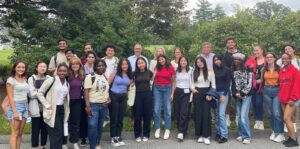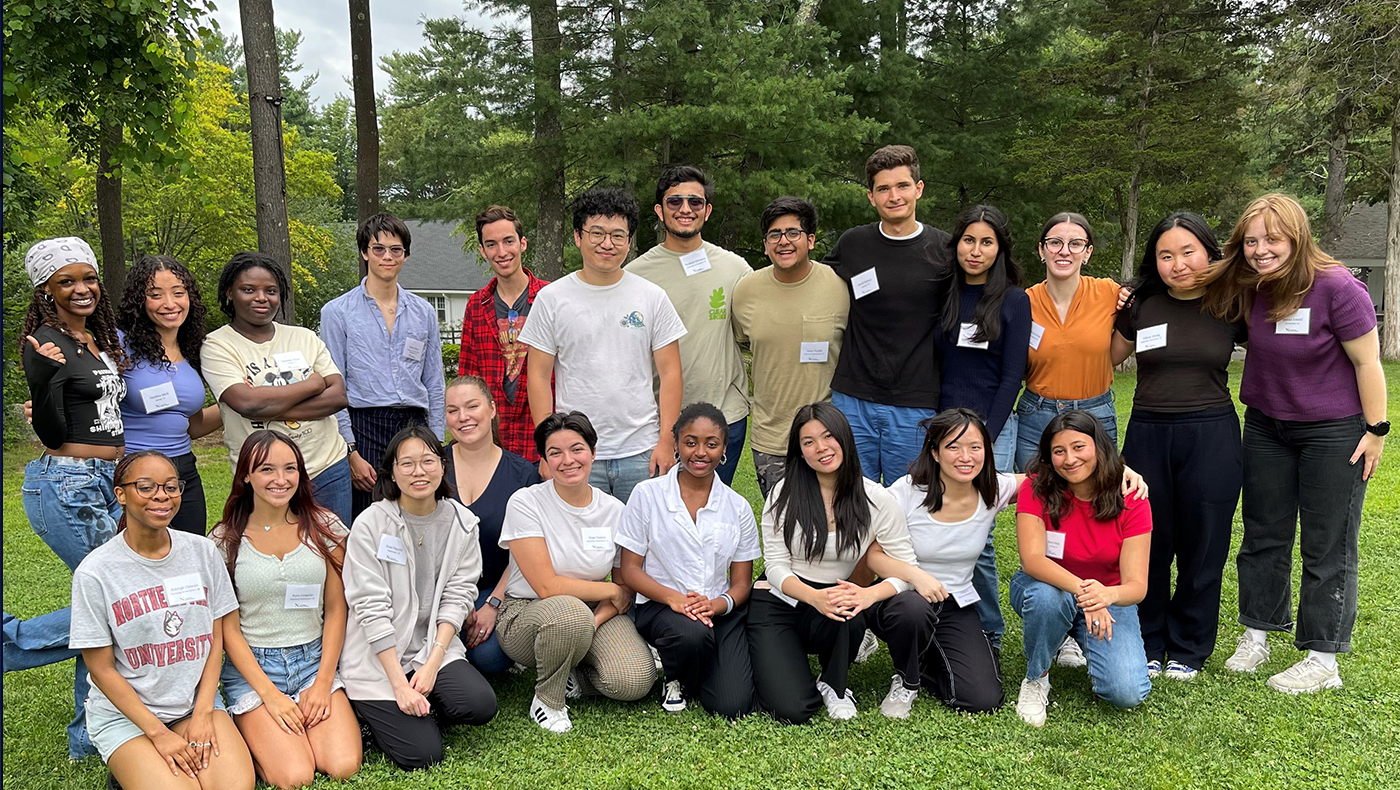On August 4, 22 Northeastern University students participated in the College of Science Entrepreneurship Workshop at the Warren Conference Center in Ashland, Massachusetts. This new program aimed to ignite a passion for entrepreneurship in College of Science students and to enhance leadership skills that are useful in all career paths. Both undergraduate and graduate students participated in this event.
Entrepreneurship may not be something many College of Science students have in mind. However, science and business can be combined in many ways, and this workshop helped College of Science students bridge the gap between those two disciplines.
Hope Zamora, a participant in this workshop, graduated in 2022 with a bachelor’s degree in behavioral neuroscience from Northeastern University.
“This workshop seemed like the perfect opportunity to get a first glimpse into the business applications of all the knowledge and experiences I collected while studying science, and that was really exciting for me,” says Zamora.
The workshop was split into two sections: a leadership activity led by Roy Charette and a pitch-making session led by Professor Stephen Golden. It culminated in a series of presentations where groups of students pitched ideas for innovative medical devices to a panel of judges. The judges included Stephan Mariano, Deborah Meshulam, and Kathryn Reisberg.
During the first part of the day, the students took part in a TrainingPath workshop that focused on leadership and collaboration. Roy Charette, founder and CEO of TrainingPath, led the teambuilding exercises included in the workshop.
“These activities really brought the group together and broke down and interpersonal barriers we had coming into the program,” says Zamora.

After a break for lunch, the students were split into groups and asked to brainstorm ideas for wearable medical devices. The leader of this portion of the workshop, Professor Stephen Golden, started this section of the day by giving a lecture on how to formulate and pitch a product that is realistic, needed by consumers, and innovative. The participants would need to keep these qualities in mind when designing their medical devices and discerning who these devices would benefit.
The pitches the students came up with were varied and useful to many different groups. One group pitched a company that provided mental health services using virtual reality (VR) technology. This technology would be available to download via an app and could create an environment suited to its clients’ particular needs using AI. Another group pitched a hearing aid that uses stem cells to repair a person’s hearing ability. A simple yet effective idea that was presented was a glucose monitor that camouflages into skin.
“All the groups made slideshows displaying the details of their inventions, including the problem they are solving, the solution, a prototype drawing, competitive analysis, and an executive summary,” says Kyra Gregorio, a participant in the workshop and behavioral neuroscience student who is completing an entrepreneurship co-op with the College of Science. In a short amount of time, these students had successfully created potential products that solve problems related to medicine and technology.
Learning about the entrepreneurial process made students more confident in their ideas.
“At its core, entrepreneurship is about identifying and defining a singular problem and establishing a means to address that problem. This knowledge made the whole process a lot less intimidating,” says Zamora.
This workshop was sponsored by the Science Connects to Innovation program at Northeastern University. Through this program, College of Science student-led startups receive grants and advising services from faculty entrepreneurs. Students can apply for this program through Northeastern’s website. Their startup proposals will then be reviewed by a panel of students from Origin, a student-led entrepreneurship club affiliated with the College of Science.
In the end, the workshop was a success. College of Science students were exposed to applications of science that they may not have seen before. It may even have changed the future aspirations of some participants.
“I now recognize that my career does not have to be exclusively focused on practicing medicine. Rather, my career can be interdisciplinary. The work that I do in clinic and in research can be translated into new techniques and technologies that can further the goals of the healthcare industry,” says Zamora.

